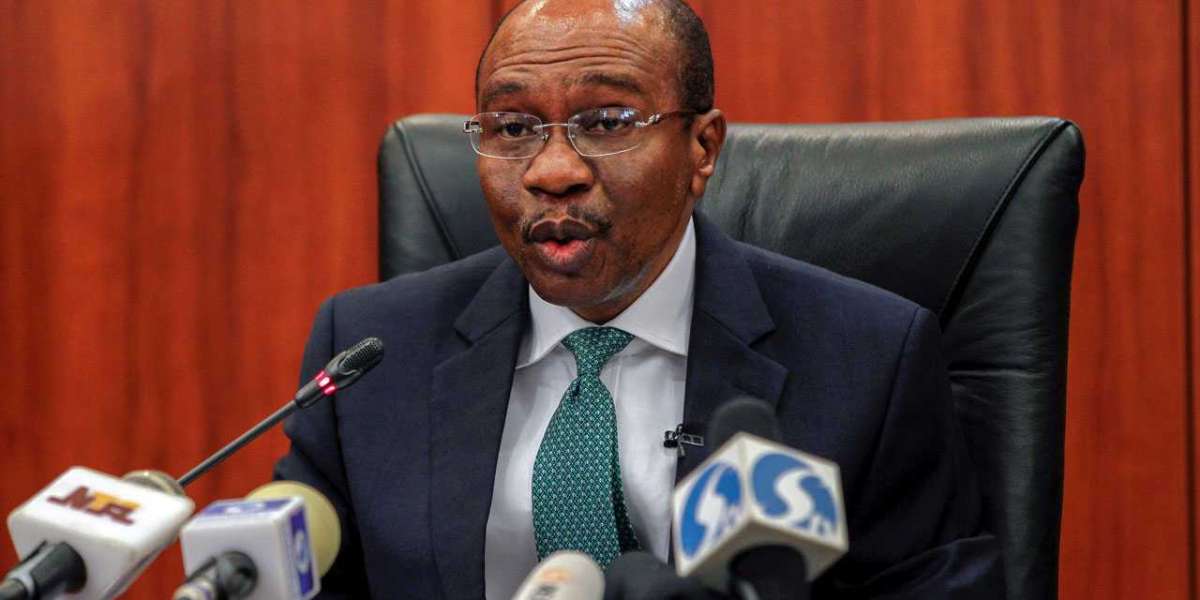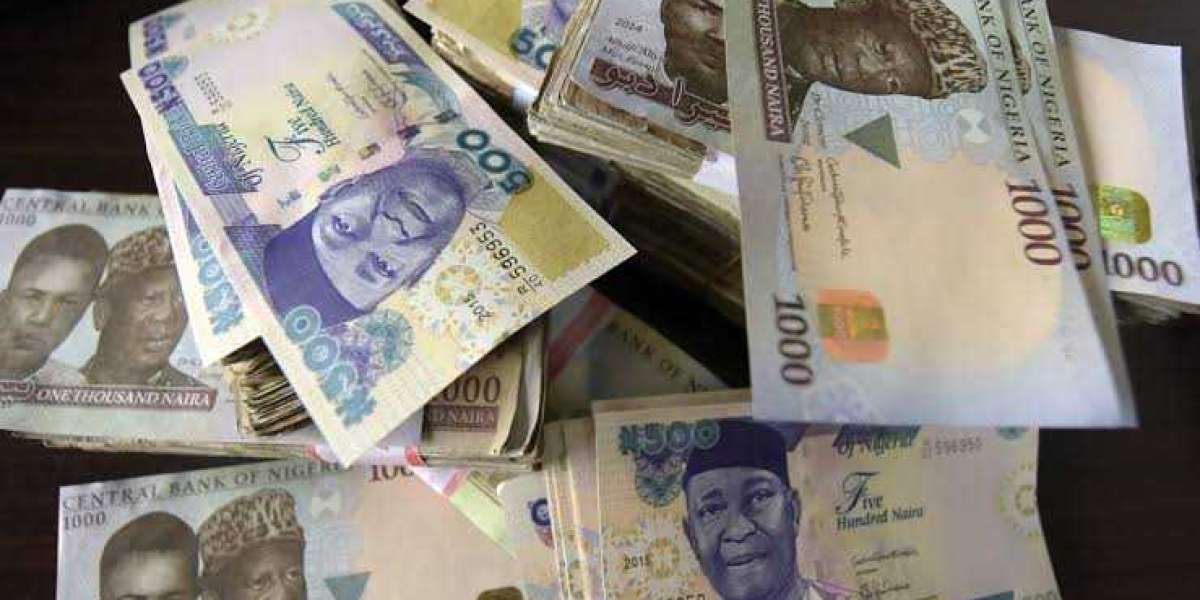The Governor of the Central Bank of Nigeria, Godwin Emefiele, made the announcement that the N100, N200, and N500 notes that are currently in circulation will be redesigned, produced, and replaced in the near future. He cited "many challenging issues" that have been ailing its currency management and "that have continued to develop in scale and sophistication with attendant and unforeseen implications for the integrity of both the CBN and the country." He said that these "consequences" have Even though some of the reasons that have been advanced are technically sound and others have raised questions, the timing of the proposal, the oversight capability of the regulator, and the short time frame for implementation, unless they are carefully managed, have the potential to backfire and hurt the fragile economy.
This daring move by Emefiele comes at a time when there is a great deal of unpredictability and the economy is in a precarious state. The Nigerian naira is suffering substantial losses when compared to other currencies, inflation and unemployment rates are at all-time highs, and the money market is in a state of turmoil, with lending rates that are squeezing out productive sectors and small and medium-sized businesses.
However, the governor of the CBN has stated that addressing challenges such as these is one of his top priorities. These include, but are not limited to, the accumulation of naira outside of the legitimate financial system, the shortage of notes that have not been tampered with, the increased risk of counterfeiting notes, and concerns regarding security.
He underlined the necessity of preventing the transportation of large sums of money to those responsible for kidnapping. When such a large amount of money is held outside of the banking system, it is much more difficult to keep inflation under control. This is one of the implications of the statement. To a certain extent, Emefiele is standing on firm ground. The Central Bank of Nigeria (CBN) is charged by law with the job of managing the nation's currency in order to protect its value and guarantee that it circulates in a manner that is both effective and efficient. In light of this, the fact that 85 percent of the naira is in circulation outside of the banking system is cause for concern. When compared to the N1.46 trillion that was in circulation as of the end of December 2015, the total value of money in circulation as of the end of September was N3.23 trillion. A whopping N2.73 trillion of this total was held outside of the conventional banking sector.
Because of this, measures that aim to moderate inflation and interest rates will fail miserably on a consistent basis. August's inflation rate reached a record high of 20.5 percent, up from 19.6 percent the previous month and the highest level in the past 17 years. Because of this, methods to limit inflation and interest rates, such as money mop-up or injection, are rendered useless. When the benchmark rate was 15.5 percent, interest rates on loans ranged from 20 percent on average to as high as 40 percent in some cases.
Large sums in the informal system facilitate dirty, tattered notes and aid counterfeiting, the CBN stated, citing high rates of falsified N500, N200, and N100 notes in recent years. Additionally, the CBN claimed that large sums in the informal sector facilitate unclean, tattered notes. Emefiele has argued that the Central Bank of Nigeria (CBN) needed only the agreement of the president and no other authority in order to govern or implement reforms, and that this power is contained in the law that established it.
The Bank bolsters its argument by referring to worldwide best practices, which state that "for central banks to develop, produce and circulate new local legal currency every five to eight years." On the other hand, the naira has not undergone any significant design changes in the past twenty years. It is hoped that this will help strengthen the eNaira effort and increase bank penetration in a country where just 45.3% of the population has a bank account.
Emefiele, on the other hand, is on less firm basis when it comes to the timing of the shift, the time period, its usefulness in managing inflation, and rates, and the security situation. More importantly, the Central Bank of Nigeria has not shown that it is capable of accomplishing such a task in an effective manner, and it has not been very good at enforcing discipline in the banking system. These, according to the opinions of seasoned professionals, have the potential to undermine the ambitious goals and make the problem even more difficult to fix than it already is. Already, the repercussions have been difficult to interpret. Minister of Finance, Budget and Planning Zainab Ahmed has distanced herself from the redesign, stating that the ministry was not consulted about the changes. She drew attention to a second immediate response to the announcement, which was that the value of the naira rose from N744 to $1 to N788 to $1 in the space of only one day. Then, as a symptom of his dysfunctional regime, the President, Major General Muhammadu Buhari (retd.), turned around and disowned the minister, saying that he supported the project because he was convinced that the economy would benefit in the form of a reduction in inflation, currency counterfeiting, and excess liquidity. But this was just the latest example of the President's dysfunctional regime. When the authorities in charge of monetary policy and fiscal policy strive toward opposite ends, the much-needed synergy is destroyed, and it becomes more difficult to accomplish policy goals. CBN's authority is not compromised in any way by the fact that other economic managers will be informed of such an activity. It is irresponsible to keep the ministry of finance in the dark about large monetary measures, as these actions will invariably have an effect on the economy as a whole.
The schedule for releasing the new notes by December 15, which is only a few weeks away, is extremely condensed. Also significant is the date of January 31, 2023, which marks the day that the old notes will no longer be accepted as currency. A number of economists have expressed concern that this could result in a demand slump due to the fact that many people will refuse to accept the older notes.
In addition, the country's electronic channels are not always trustworthy because of the inadequate public support infrastructure and the ineffective management of the country's information systems.
The compliance of the deposit money banks with the first-come-first-serve instruction issued by the Central Bank of Nigeria (CBN) in the process of exchanging fresh notes for new currency is essential to the project's success. The banks, on the other hand, are known for swindling customers and extorting money from them while habitually disobeying CBN laws. Particularly during Emefiele's watch, the Bank of England has been lax in its enforcement of regulations. They engage in blatant round-tripping, deny customers foreign exchange remitted to them from abroad, deny legitimate businesses forex at approved rates, and help money launderers short-change the economy. The policy of stopping direct dollar sales to the bureaux de change has been rendered meaningless by their actions. They also deny customers foreign exchange remitted to them from abroad. The CBN appears to be powerless, as it is satisfied to impose meaningless fines that have no impact on the billions of dollars that the perpetrators earn from their schemes.
On Saturday, the official exchange rate was N438.09 to $1 US dollar, while the rate on the unofficial market, which is considered to be more accurate, was between N770 and N780 to $1. On Monday, the value of the naira continued its downward trend, reaching nearly N800 to $1.
There is also the problem of preventing kidnappers from obtaining money. In reality, the ineffectiveness of the Central Bank of Nigeria (CBN) and other law enforcement officials in successfully enforcing rules and regulations pertaining to money laundering is what makes it possible for vast sums of money to be kept outside of bank vaults. Redesigning the naira notes would not prevent big cash pay-outs to kidnappers as long as there is no enforcement of limits on the amount of cash that can be withdrawn by individuals and business organizations. According to figures provided by SBM Intelligence, kidnappers made a total of N653.7 million in the year leading up to July 2022. On its own, the kidnapping of passengers on the Kaduna train is said to have brought in more than N2 billion in ransom payments.
Redesigning the money in an effort to deter kidnappers does not, by any stretch of the imagination, justify the expense of producing new notes. An Islamic preacher who is well-known for his strong ties to bandits has already theorized that kidnappers will now demand the ransom be paid in dollars.
The last time Nigeria carried out an operation of this kind was in 1984, when Buhari was serving as military head of state. This operation was carried out in response to concerns regarding security and corruption in the country. After that, both the federal government and the state governments gave their full support, and the entire security apparatus was put into full mobilization. The nation's borders were sealed off for a period of two weeks. The CBN would be required to include input from all relevant parties, such as the customs and immigration agencies.





Tomiwa Oshiariyo 48 i
New naira notes shouldn't have been embarked upon , this is a means of siphoning public funds by the institution in charge